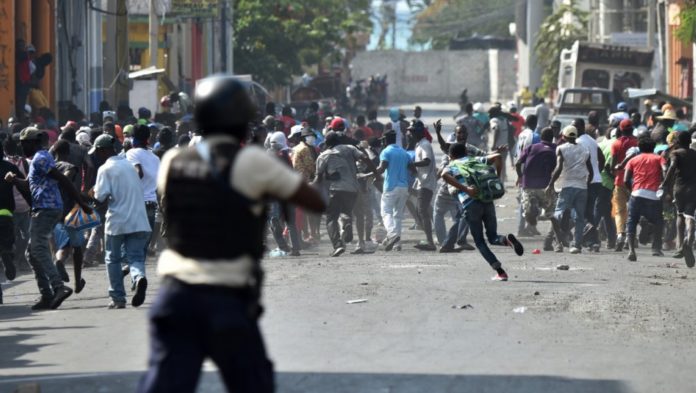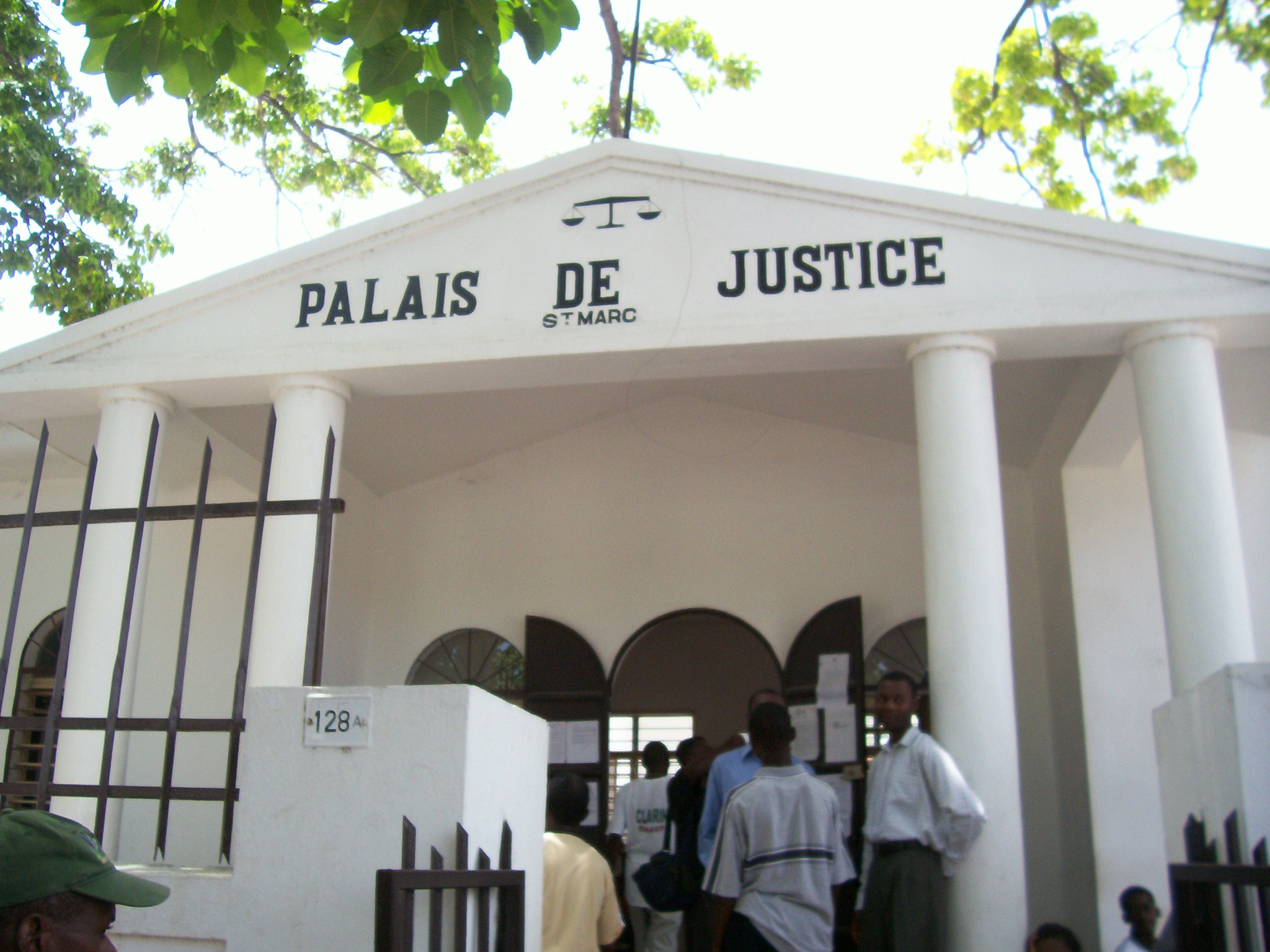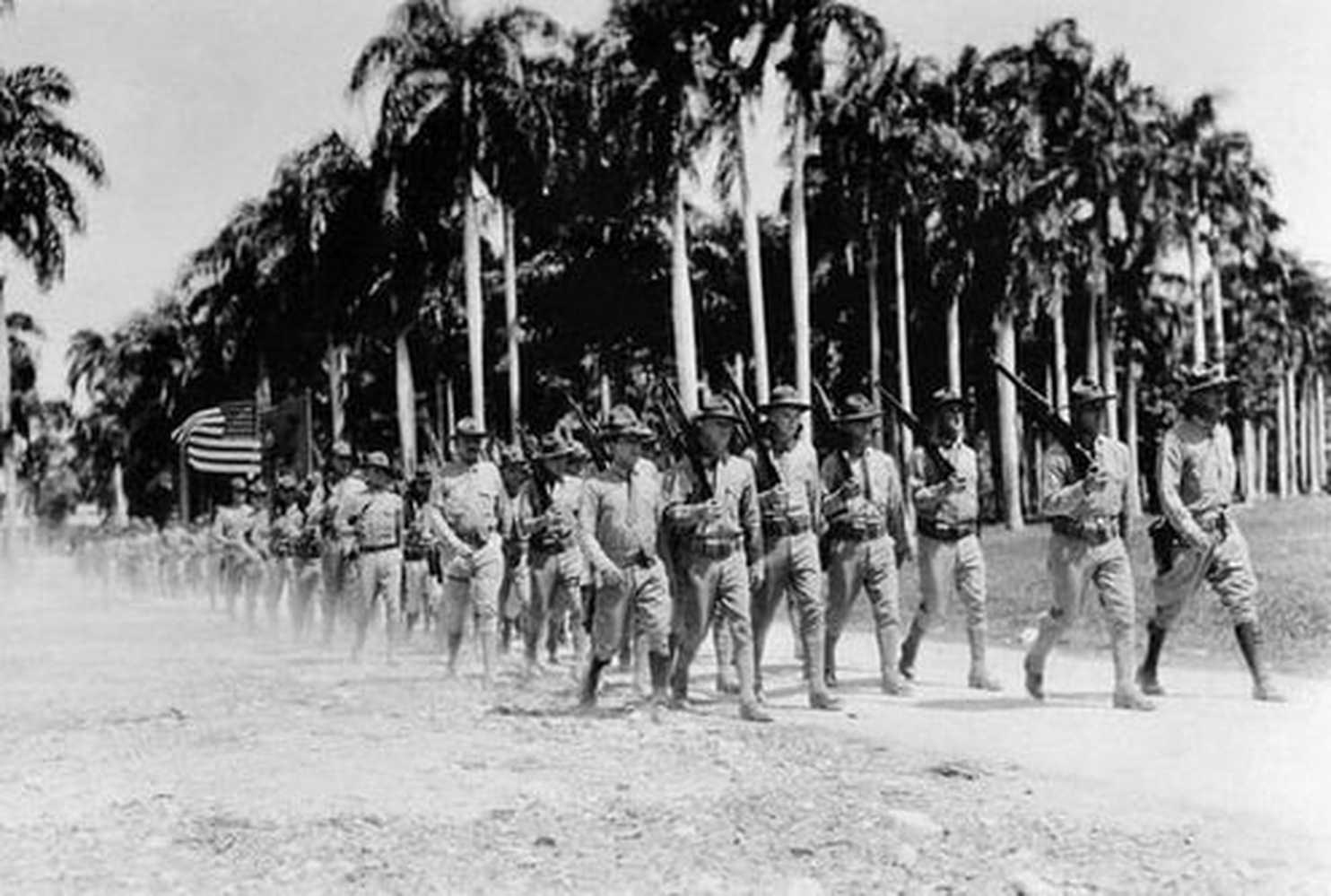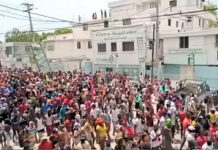
(The third of three parts)
(Part 2)
This is the third and last installment of an IJDH report seeking to put the current crisis in Haiti into context by explaining the short-, medium- and long-term factors driving the unrest, including detailing some of the gravest human rights violations in Haiti during President Moïse’s tenure.
IV. Root Causes
The root causes of the current mobilization extend beyond the current government, to decades of domestic and foreign policies in Haiti that have thwarted the ability of the impoverished majority to participate in democracy and enforce their basic human rights.124 Haitians are taking to the streets because they have lost faith in state institutions and processes as viable vehicles for accountability and social change. The movement is demanding fundamental change to the political and economic systems that result in extreme wealth for the few, and extreme poverty and desperate living conditions, and a denial of basic rights such as access to school, healthcare and safe housing for the majority of Haitians. The current crisis is the result of failures of Haitian institutions and government policies. But the international community — including powerful governments with long-term involvement in Haiti, international organizations, and financial institutions — also bears responsibility for decades of involvement in Haiti that has put superficial stability and the interest of powerful actors in Haiti and abroad above investment in true democracy and rule of law that would honor the rights of the poor majority in Haiti.125
A. Non-Democratic Elections
Haitians are taking to the streets to demand systemic change because they have lost faith that another election alone can bring about a more representative government. Following the demise of 29 years of dictatorships under the Duvaliers in 1986, Haitians initially had high hopes in democracy126. But repeated electoral violence, vote-rigging, disenfranchisement, and foreign interventions have bred deep disillusionment.127 The United States and other countries have spent millions on building up Haiti’s electoral system, but these investments have come with repeated meddling in election results,128 and support for flawed elections that benefitted international actors’ Haitian allies, producing an electoral system that is weaker, less trusted and more exclusionary.129 In 2000, when Haitians voted enthusiastically — turnout was 68% — the results were overturned by the 2004 coup d’état organized by those who possess wealth and power in Haiti, the United States, Canada and France.130 More recently, the 2010-2011 elections that brought Michel Martelly, President Moïse’s predecessor and political patron into power, were marred by fraud, irregularities and the exclusion of Haiti’s largest party, Fanmi Lavalas, from participation.131
The United States and other countries have spent millions on building up Haiti’s electoral system, but these investments have come with repeated meddling in election results
Despite widespread protest from Haitians that elections needed to be redone and done properly, the United States and others repeatedly pushed for the process to move forward in the name of stability.132 As documented in U.S. diplomatic cables and by international and Haitian officials who were involved in the electoral process, U.S. Secretary of State Hillary Clinton ultimately forced the Electoral Council (by threatening to cancel U.S. visas) to change the first-round results to move third-place candidate Martelly into the runoff.133 President Martelly’s regime was itself marked by severe human rights violations and, after years of unconstitutional delay, the regime presided over elections with enough violence, corruption, and voter exclusion to dampen participation.134 President Martelly’s protégé Jovenel Moïse won that election with only 20% of the electorate participating, reflecting both government intimidation and Haitians’ reduced confidence in the ballot box as an avenue for social change.135
B. Absence of Rule of Law
The lack of rule of law in Haiti is another root cause of the current protest. The Haitian justice system suffers from pervasive corruption and chronic underinvestment, resulting in systematic impunity for human rights violations.136 The government’s lack of financial investment in the judicial sector makes fertile ground for bribery, which is commonplace at every level of the judicial system.137 For example, salaries for court officers including judges are notoriously low. A recent report by RNDDH found that annual salaries for judges in the courts of first instance averaged between $4,800 and $7,520,138 which almost requires judges to accept bribes if they are to live a modest middle-class lifestyle. Allegations are rarely pursued since judicial agents are often complicit in acceptance of bribes and preferential treatment of the elite.139 The weak, politicized judicial system has meant that courts have exercised no restraint on governmental corruption and grave human rights violations.

Haiti’s police force is also weak, undertrained, inexperienced, and politicized, resulting in abuses of authority, lack of protection, and weak investigation capacity in the face of rights violations. There are approximately 15,000 people in the current police force, which has never reached the level deemed necessary to provide public safety for the country.140 The HNP has developed relationships with gangs and does not have adequate structures for officer accountability when abuses occur.141 The police force’s limitations, combined with a justice system that is unable to provide adequate deterrence to crime leaves Haitians, particularly those who are vulnerable and who live in poor neighborhoods run largely by gang members, extremely vulnerable.
The international community has long articulated the importance of the rule of law in Haiti and has invested billions of dollars in building up a stronger judicial system and the rule of law.142 Over the past 25 years, the UN has regularly had peacekeeping and police missions in Haiti to train the Haitian police force and promote stability through rule of law. While the missions have increased the number of trained police officers, the UN’s overall limited success in promoting rule of law is partly attributable to its own implications in rights violations with impunity. The UN Stabilization Mission in Haiti (MINUSTAH), which closed down in 2017, is implicated in a series of human rights violations, including indiscriminate killing of civilians during a July 2005 raid in Cité Soleil,143 raping and sexually abusing civilians,144 and causing a devastating cholera epidemic that has killed over 10,000 people and infected more than 800,000.145 The UN took more than five years to publicly admit a role in the outbreak despite numerous scientific studies establishing that cholera was introduced to Haiti as a result of reckless disposal of human wastes from a MINUSTAH base.146 Haitian civil society and international experts — including the UN’s own human rights experts — have repeatedly warned that a failure to submit to justice for cholera undermines the UN’s own credibility.147
The UN’s loss of credibility and resulting limited impact is demonstrated by MINUJUSTH’s inability to call for accountability in the current crisis. As discussed above, since the Mission’s unwelcomed statement supporting the assignment of an investigative judge to the PetroCaribe case and urging an investigation into the Grand Ravine massacre, in early 2018, the UN has largely refrained from directly speaking out in the face of abuses.
C. Deep-Seated Poverty
The deep-rooted poverty in Haiti is the result not only of corruption and economic mismanagement by President Moïse and his predecessors, but of centuries of Haitian governments serving the interest of the elite.148 It is also the result of decisions made outside of Haiti that have repeatedly devastated Haiti’s economy and thwarted development. Haiti won its independence in 1804 as the world’s only nation founded through a slave revolt, and has paid a steep price for its provenance.149 In 1825, France illegally extorted well over today’s equivalent of $19 billion from Haiti, as compensation for its “property” lost through emancipation.150 Haiti’s subsequent crippling debt took 122 years to repay, and prompted the U.S. to invade Haiti in 1915.151

The U.S. occupied Haiti for 19 years, during which it took financial control of the country and forced Haiti to put 40% of its national income towards foreign debt repayment.152 The brutal occupation enforced a system of forced labor and murdered thousands of Haitians who resisted the occupying forces,153 leaving a blueprint for future oppressive regimes. More recently, U.S. neoliberal trade policies towards Haiti have had devastating impacts on the agricultural economy. For example, President Bill Clinton infamously forced Haiti to reduce import tariffs on rice in the 1990s, which resulted in U.S. subsidized rice flooding the markets and destroying the Haitian rice industry — a policy for which Clinton eventually issued a public apology.154
V. The Way Forward
Protest leaders and participants’ primary demand is for President Moïse’s departure, but they are also clear that the solution has to go deeper than a change in leadership, to address the systemic problems and structural violence. Meanwhile, the international community has urged elections as the way forward. In response to the February 2019 protests that shut down the country, the Core Group – composed of representatives from the UN, Brazil, Canada, France, Germany, Spain, the European Union, the United States, and the Organization of American States – issued a statement urging that “change must come through the ballot box”.155 Elections alone are unlikely to result in the kind of systemic change that Haitians demand, however.
Should President Moïse step down, the Haitian constitution provides that his resignation would trigger a caretaker government to hold prompt elections. There is uncertainty in the law about the details, however, as the 1987 constitution was amended in 2012 under controversial circumstances. One of the concerns is the fact that only the French version of the Constitution was amended, while the Haitian Creole version, which is also an official version, was not.156 As a result, many lawyers in Haiti believe that both versions control. Under the French version, upon a Presidential vacancy the government is led by the Prime Minister and the Council of Ministers, and must organize elections in 60-120 days.157 Under the Haitian Creole version, the President of the Cour de Cassation (Supreme Court) becomes President and must organize elections in 45-90 days.
Because of the lack of trust in the current administration, civil society groups appear in agreement that if the President resigns, a Cour de Cassation justice should be appointed as President in accordance with the Creole version. The current President of the Court, René Sylvestre, however, was only appointed to the court on Feb. 1, 2019 by President Moïse.158 As a result, civil society has pushed for an alternate justice on the court to become President. There is also broad civil society agreement that there should be an oversight body, a Conseil National du Gouvernement, with between 11 and 33 members, to apply public pressure on the government to take measures that lead to fair elections and fundamental changes to Haiti’s unjust structures. Finally, there appears to be a consensus that it would be impossible to organize fair elections within 90 or 120 days, and that a longer period would be necessary to organize truly participatory elections.
Beyond a transition government, civil society is also pushing for the establishment of a National Conference as way forward. Such a convening would start at the grassroots level, and include representatives from each of Haiti’s communal section who would come together to dialogue on the way forward for the country.
VI. Conclusion
Just as the causes behind Haiti’s current political crisis are deep and complex, there is no quick or easy way out of the current crisis. If Haiti is to truly achieve stability, the deep-rooted democratic and rule of law deficiencies that have resulted in the exclusion of the impoverished majority will have to be addressed. The question facing the Haiti government, and the international community that has historically played an outsized role in Haiti, is whether the current turmoil will be used as an opportunity to truly invest in systemic change. Until they do, more chaos is likely to follow. It is thus a time of intense uncertainty, but also a time of renewed hope.
REFERENCES
- Thomas E. Ricks, Remember Haiti?: It’s that Big Island near Cuba that no one Likes to Mention, FOREIGN POLICY, Jan. 26, 2011, https://foreignpolicy.com/2011/01/26/remember-haiti-its-that-big-island-near-cuba-that-no-one-likes-to-mention/.
- Haiti’s Eroding Democracy, supra note 57; Anne Beckett & Aaron Richterman, You Can’t Understand Haiti’s Protests Without Understanding History, WBUR (Mar. 11, 2019), https://www.wbur.org/cognoscenti/2019/03/11/haiti-protests-anne-beckett-aaron-richterman.
- Nat’l Lawyers Guild, supra note 13.
- Id. at 2-3; Robert Maguire, Liberated Haiti: Thirty Years after Duvalier, GLOBAL AMERICANS, (Feb. 3, 2016), https://theglobalamericans.org/2016/02/liberated-haiti-thirty-years-after-duvalier/.
- See e.g., Kevin Moran & Azadeh Shahshahani, Haiti: US interference Wins Elections, THE HILL (Oct. 13, 2015), https://thehill.com/blogs/congress-blog/foreign-policy/256679-haiti-us-interference-wins-elections; Jake Johnston, Clinton Emails Point to U.S. Intervention in 2010 Elections, CTR. FOR ECON. & POLICY RESEARCH (Sept. 7, 2016); INST. FOR JUSTICE & DEMOCRACY IN HAITI, supra note 13; Stotzky & Concannon, supra note 13; Haiti Election Primer, supra note 13.
- See Jake Johnston, The US Spent $33 Million on Haiti’s Scrapped Elections – Here is Where it Went, CTR. FOR ECON. & POLICY RESEARCH (June 7, 2016), http://cepr.net/blogs/haiti-relief-and-reconstruction-watch/the-us-spent-33-million-on-haiti-s-scrapped-elections-here-is-where-it-went; INST. FOR JUSTICE & DEMOCRACY IN HAITI, supra note 13; NAT’L LAWYERS GUILD, supra note 13 at 1, 14.
- See e.g. Paul Farmer, Who Removed Aristide?, 26:8 LONDON REV. BOOKS 28 (Apr. 2004), https://www.lrb.co.uk/v26/n08/paul-farmer/who-removed-aristide; PETER HALLWARD, DAMMING THE FLOOD: HAITI AND THE POLITICS OF CONTAINMENT 82-84, 175-77, 230-2, 239-41, 257-58 (2007); FRAN QUIGLEY, HOW HUMAN RIGHTS CAN BUILD HAITI 146-7 (2014).
- See e.g., Jake Johnston & Mark Weisbrot, Haiti’s Fatally Flawed Election (2011), http://cepr.net/documents/publications/haiti-2011-01.pdf (documenting problems in 2010 election); Inst. For Justice & Democracy in Haiti, supra note 13; Letter from Rep. Maxine Waters et al. to Sec. Clinton, Oct. 7, 2010, available at: https://waters.house.gov/media-center/press-releases/congresswoman-waters-colleagues-urge-secretary-clinton-support-fair-free (expressing concern over exclusion of dozen political parties including Fanmi Lavalas); Dan Coughlin & Kim Ives, Haiti’s Rigged Election, THE NATION, June 15, 2011, https://www.thenation.com/article/haitis-rigged-election/.
- Jake Johnston, Clinton E-Mails, supra note 133.
- See e.g., Dan Beeton & Georgianne Neinaber, Haiti’s Doctored Elections, Seen from the Inside: An Interview with Ricardo Seitenfus, DISSENT MAG., Feb.14, 2014 (interview with OAS Special Representative at time of election); Jake Johnston, Clinton E-Mails, supra note 133; Arshad Mohammed, Clinton Presses OAS Solution to Haiti Impasse, REUTERS, Jan. 30, 2011, https://www.reuters.com/article/haiti-elections-clinton/update-4-clinton-presses-oas-solution-to-haiti-impasse-idUSN3018046720110131.
- Nat’l Lawyers Guild, supra note 13; Jonathan M. Katz, What Happens When a Celebrity Becomes President, ATLANTIC, Feb. 9, 2016, https://www.theatlantic.com/international/archive/2016/02/haiti-michel-martelly/461991/.
- Nat’l Lawyers Guild, supra note 13.
- Rep. of the Indep. Expert on the Situation of Human Rights in Haiti, 10-15, U.N. Doc. A/HRC/31/77, (Feb. 12, 2016), available at https://documents-dds-ny.un.org/doc/UNDOC/GEN/G16/024/42/PDF/G1602442.pdf?OpenElement.
- Alternative Chance et Al., Criminal Justice, Submission to the Universal Periodic Review (2011), available at http://www.ijdh.org/2011/03/topics/law-justice/universal-periodic-review-criminal-justice-report-alternative-chance-center-for-constitutional-rights-conference-des-universitaires-pour-la-defense-des-droits-et-de-la-liberte-lamp-for-haiti-foun/#.UZ5OYqJ0DeE (« The corruption stems from the fact that judges and staff are underpaid and salaries are insufficient to cover basic living expenses, so they resort to other forms of money Making,..”); reseau National Defense Des Droits Humains, Etude Sur Les Conditions Generales De Travail Des Composantes De La Chaine Penale Haïtienne (2019), http://rnddh.org/etude-sur-les-conditions-générales-de-travail-des-composantes-de-la-chaîne-pénale-haïtienne/; Justice : Le Rnddh souhaite des « sanctions sévères » contre les corrompus dans le système judiciaire en Haïti, ALTERPRESSE, Oct. 18, 2017, http://www.alterpresse.org/spip.php?article22228#.WlkzSK6nF0E [hereinafter « Tough Sanctions »].
- ETUDE SUR LES CONDITIONS GENERALES, supra note 137 at 21.
- ALTERPRESSE, supra note 137; Symposium Commentary, Judicial Corruption in Haiti: The Need for Discipline and Civil Society Participation, 39 HASTINGS INT’L & COMP. L. REV. 183 (2016). Further, in December, 2017, President Jovenel Moïse claimed he felt forced to nominate 50 corrupt judges based upon the list submitted by the Conseil Superior du Pouvoir Judiciaire (CSPJ) charged with vetting judges, a claim that the CSPJ categorized as an attempt to jeopardize the independence of the judiciary and a violation of the Haitian constitution: see Ruth Cadet, Juges Corrompus: Le CSPJ Dément et Accuse le Président Jovenel Moïse d’Avoir Violé la Constitution, LE NOUVELLISTE, Dec. 15, 2017, http://www.lenouvelliste.com/article/180625/le-cspj-dement-et-accuse-le-president-jovenel-Moïse-davoir-viole-la-constitution.
- U.N. Secretary-General 2019 report, supra note 3.
- Amnesty International, Haiti Submission to the UN Human Rights Committee, 112th Session of the UN Human Rights Committee (Oct. 2014), https://www.amnesty.org/download/Documents/4000/amr360122014en.pdf; Charles, Haiti Police Outgunned, supra note 90; Jacqueline Charles, UN Sets Stage for End of Peacekeeping in Haiti. A Worried Dominican Republic Objects, MIAMI HERALD, (Apr. 12, 2019), https://www.miamiherald.com/news/nation-world/world/americas/haiti/article229164759.html.
- Where Does the Money Go?, supra note 12; UNSC Votes, supra note 12; S.C. Res. 1542, supra note 12 (establishing rule of law mandate).
- Siobhan Wills et al., Sent to Haiti to Keep the Peace, Departing UN Troops Leave a Damaged Nation in their Wake, THE CONVERSATION, Oct. 13, 2017, http://theconversation.com/sent-to-haiti-to-keep-the-peace-departing-un-troops-leave-a-damaged-nation-in-their-wake-85584.
- Dan Beeton, Soldiers Without a Cause: Why Are Thousands of UN Troops Still in Haiti?, Mar. 22, 2012, http://cepr.net/publications/op-eds-columns/soldiers-without-a-cause-why-are-thousands-of-un-troops-still-in-haiti; Press Release, Bureau des Avocats Internationaux & Inst. for Justice & Democracy In Haiti, Ten mothers of 11 children abandoned by UN peacekeepers bring a legal action to recover child support and establish custody, Dec. 11, 2017, http://www.ijdh.org/2017/12/topics/law-justice/for-immediate-release-ten-mothers-of-11-children-abandoned-by-un-peacekeepers-bring-a-legal-action-to-recover-child-support-and-establish-custody/.
- Jonathan Katz, U.N. Admits Role in Haiti Cholera Epidemic, N.Y.TIMES, Aug. 17, 2016, https://www.nytimes.com/2016/08/18/world/americas/united-nations-haiti-cholera.html [hereinafter U.N. Admits]; Sandra Wisner, Despite UN inaction Haiti’s cholera victims fight for justice, INTLAWGRRLS (Dec. 6, 2018), https://ilg2.org/2018/12/06/despite-un-inaction-haitis-cholera-victims-fight-for-justice/.
- Katz, U.N. Admits, supra note 145.
- See e.g., Report of the Special Rapporteur on Extreme Poverty and Human Rights, U.N. Doc. A/71/367 (Aug. 26, 2016), available at https://reliefweb.int/report/haiti/extreme-poverty-and-human-rights-a71367; Jake Johnston, When Will The United Nations Pay For Its Actions in Haiti?, CARIBBEAN J., March 1, 2013, available at http://www.caribjournal.com/2013/03/01/op-ed-when-will-the-united-nations-pay-for-its-actions-in-haiti/# (“the UN’s responsibility for introducing cholera…[has] been a defining feature of [MINUSTAH’s] time in Haiti…Part of MINUSTAH’s mandate in Haiti is ostensibly to strengthen the rule of law, support the Haitian justice system and help protect human rights. Talk about a setting a poor example – it’s no wonder that polls find a majority of Haitians want MINUSTAH to leave Haiti and to compensate victims of cholera); First, Do No Harm, ECONOMIST, Apr. 28, 2012 (“Even as Haitians have been outraged by MINUSTAH’s wrongdoing, they have become increasingly doubtful of the benefits it provides…Only the UN can restore MINUSTAH’s legitimacy.”); Deborah Sontag, In Haiti, Global Failures on a Cholera Epidemic, N.Y. TIMES, March 31, 2012 (“…the issue has strained the peacekeepers’ relationship with the Haitians they are protecting in an eight-year mission to stabilize the politically volatile nation.”).
- See Stotzy & Concannon, supra note 13 (discussing the role of elite and corporate capture in Haiti’s governance systems).
- Isabel Macdonald, France’s Debt of Dishonour to Haiti, The Guardian, May 2015, https://www.theguardian.com/commentisfree/cifamerica/2010/aug/16/haiti-france.
- Id; Beckett & Richterman. supra note 125.
- Hollande promises to pay ‘moral debt’ to former colony Haiti, THE GUARDIAN, May 13, 2015, https://www.theguardian.com/world/2015/may/13/hollande-haiti-visit-france-former-colony; Ishaan Tharoor, 100 Years ago, the U.S. invaded and Occupied this country. Can you Name it?, WASH. POST, July 30, 2015, https://www.washingtonpost.com/news/worldviews/wp/2015/07/30/100-years-ago-the-u-s-invaded-and-occupied-this-country-can-you-name-it/?utm_term=.0b1ab03dba16.
- Beckett & Richterman, supra note 125; Haiti Grassroots Watch, HAITI: Aid or Trade? The Nefarious Effects of U.S. Policies, GLOBAL RESEARCH, (Nov. 7, 2013), https://www.globalresearch.ca/haiti-aid-or-trade-the-nefarious-effects-of-u-s-policies/5357204.
- Beckett & Richterman, supra note 125; Christopher Woolf, When America Occupied Haiti, PRI (July 28, 2015), https://www.pri.org/stories/2015-08-06/when-america-occupied-haiti.
- Ctr. For Human Rights & Global Justice et Al., Sak Vid Pa Kanpe: the Impact of U.s. Food Aid on Human Rights in Haiti (2016), https://chrgj.org/wp-content/uploads/2016/09/sakvidpakanpe.pdf.
- Press Release, U.S. Embassy Haiti, Core Group Statement (Feb. 11, 2019), https://ht.usembassy.gov/press-release-port-au-prince-10-february-2019-the-core-group/.
- Haiti Amends Constitution, COUNCIL ON HEMISPHERIC AFFAIRS (July 25, 2012), http://www.coha.org/haiti-amends-constitution/.
- Haiti’s Constitution of 1987 with Amendments through 2012, CONSTITUTE PROJECT (Sept. 24, 2013), http://extwprlegs1.fao.org/docs/pdf/hai127411.pdf.
158. Petrocaribe & Corruption, HAITI PROGRES, (Feb. 6, 2019), http://haiti-progres.com/news/2019/02/06/haiti-petrocaribe-corruption/.










